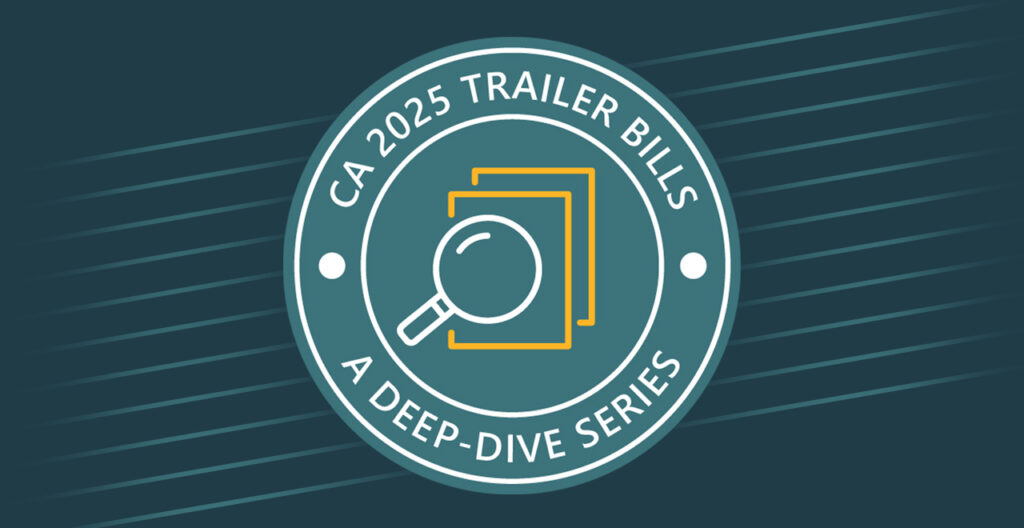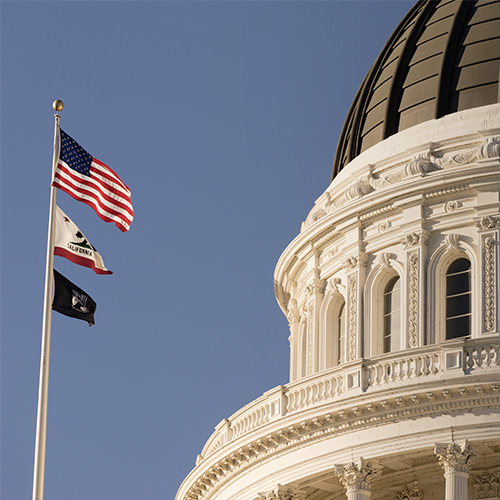CA 2025 Trailer Bills—A Deep-Dive Series
Ascent explores how Assembly Bill (AB) 130 and Senate Bill (SB) 131 affect California Environmental Quality Act (CEQA), climate action planning, and housing development with practitioner insights for planners and environmental professionals.
CEQA Reform Webinar: Understanding What AB 130 and SB 131 Mean for Your Community
10.30.2025
California’s 2025–26 budget trailer bills—AB 130 and SB 131—have introduced significant changes to CEQA, planning and zoning law, and building codes. What do these reforms mean for projects in your community?
Ascent’s Erik de Kok, Chad Beckstrom, and Greta Brownlow joined Ali Pezeshkpour from the City of Santa Ana for an in-depth discussion on the practical implications of these legislative changes.
Please read the full article for a link to the webinar recording and presentation slides.
SB 131 Expedites Housing Projects That Almost Qualify for a CEQA Exemption
09.25.2025
California’s SB 131 (Statutes of 2025) introduces a groundbreaking “near miss” provision for housing projects seeking to use an exemption for CEQA compliance. The innovation is this: If a proposed housing project qualifies for a CEQA exemption but for a single exemption criterion, CEQA review for the project may be limited to the environmental effects related to that single condition. Before SB 131, a single-topic “miss” of an exemption criterion would force the project to prepare an environmental document, which may be a negative declaration, mitigated negative declaration, or EIR, and comply with their respective public review periods. Limiting the environmental analysis to one topic could slash approval time from years to months and significantly reduce costs, addressing California’s housing crisis while maintaining environmental protections where they matter most.
Please read the full article for more information on updates to CEQA exemptions for housing projects.
AB 130’s Game-Changer for CEQA Streamlining of Housing Development—The New Infill Exemption
08.13.2025
AB 130 represents a significant step in furthering streamlining of housing development under CEQA, potentially the most significant CEQA revision in decades. This new legislation introduces a comprehensive infill housing statutory exemption that allows qualifying projects to bypass CEQA documentation entirely—no extensive environmental review, complex documentation, or lengthy approval processes. Unlike previous convoluted attempts at expediting housing project approvals, AB 130 provides a clean, broad exemption that applies statewide with no unit caps, minimal labor requirements, and no affordability mandates for most projects. For developers and local governments, this means faster approvals and reduced costs. For communities, it means more housing production to address California’s affordability crisis.
Please read the full article for a comparison of AB 130 with other CEQA exemptions, practice recommendations, and a downloadable project site worksheet tool to help determine qualification for the new infill housing exemption.
New CEQA Exemption for Parks and Trails Funded by Proposition 4
08.06.2025
On June 30, 2025, Governor Newsom signed Senate Bill 131, one of the most substantial changes to the California Environmental Quality Act. Among the provisions of SB 131 is a new CEQA exemption intended to streamline the deployment of public park and nonmotorized recreational trail facilities funded by the Safe Drinking Water, Wildfire Prevention, Drought Preparedness, and Clean Air Bond Act of 2024 (i.e., Proposition 4). As part of our series on the effects of SB 131, we take a deep dive into this new statutory exemption for public parks and nonmotorized trails.
In the full article, we analyze which projects are eligible for this exemption, compare it to other CEQA streamlining options for parks and trails, and provide some practical suggestions and helpful links for using the new exemption.
AB 130 Residential Reach Code Moratorium
– Implications for Climate Action
07.30.2025
The adoption of the California state budget on June 30 was accompanied by a trailer bill package that included some surprises in the enactment of AB 130 and SB 131. While much of the discussion regarding the trailer bills has been focused on a substantial CEQA pivot, an eye-opener for climate action came with AB 130, which incorporated the previously introduced AB 306 and its moratorium on residential reach codes until 2031. This bill has fundamentally altered the regulatory environment for reach codes for the next six years.
Please read the full article to learn more about climate action practice realities and insights coming out of the Legislature.





